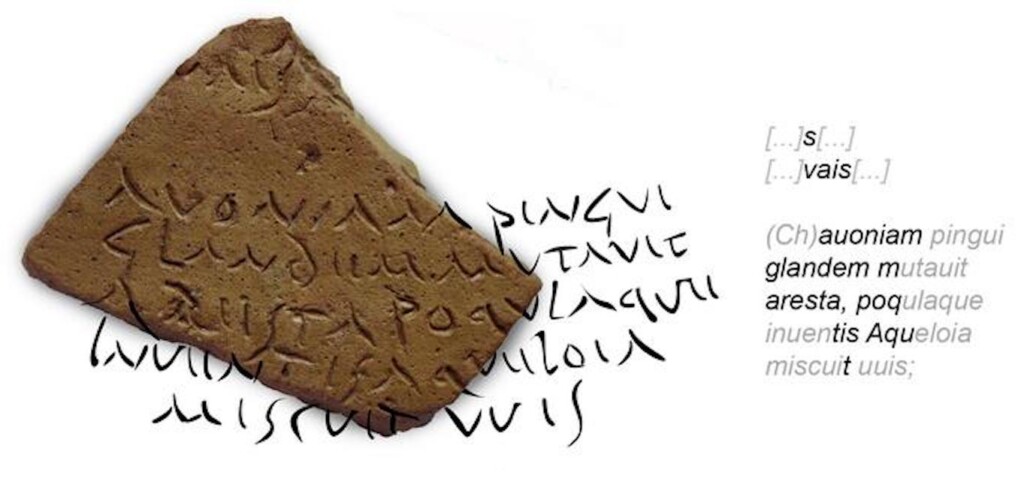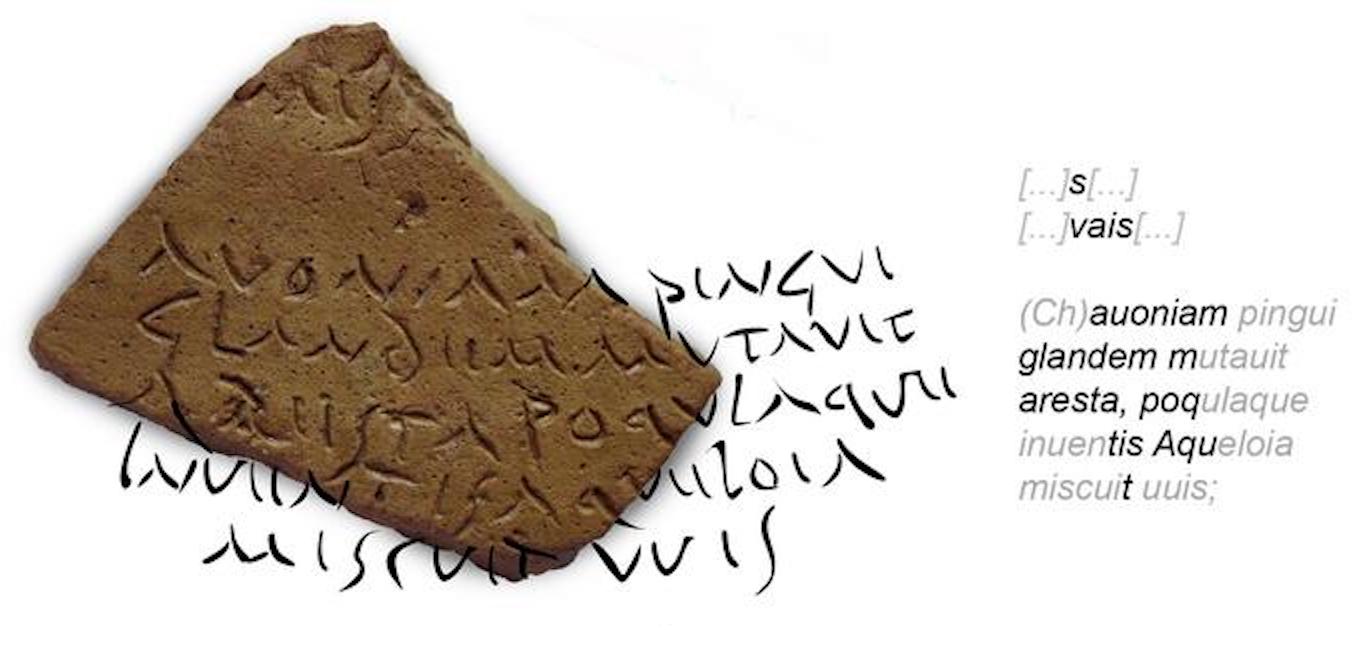
Although popular, his works have never been found as decoration before and they believe the inscription on the bottom of an olive oil amphora is a world first.
The 1,800-year-old fragment was found near Cordoba in Spain, the epicenter of the Roman olive oil trade.
Although famous for his poem The Aeneid, the 2-inch-long fragment actually has verse from The Georgics which he wrote in 29 BCE.
The poem is dedicated to agriculture and life in the countryside which is fitting for the area in which it was found.
Translated the fragment reads “Earth changed Chaonia’s acorn for the rich corn ear, and blended draughts of Achelous with the newfound grapes.”
The archaeologists from the University of Cordoba were able to get the text by overlaying the Latin with the partial inscription.
“The magnitude and exceptionality of the discovery has left the European archaeological community flabbergasted,” said study author Iván González Tobar. “There were some spelling mistakes that held us back from seeing what it was straight away but we did eventually get there.”
The fragment was not unusual and many amphorae have inscriptions detailing the contents. It was only when they deciphered the words and realized they were part of Virgil’s poem that they became excited at the discovery.
Strangely, the verses were written on the underside of the amphora where few people would notice them, suggesting a curious cultural appreciation and a certain level of literacy in the fertile plain of the Guadalquivir area where it was found.
Virgil was the most popular poet of his time, and still many centuries later.
OTHER ROMAN DISCOVERIES: “Incredibly Rare” Roman Mausoleum Uncovered Beneath London Construction Site
The Aeneid was taught at schools, and its verses were routinely written as a teaching exercise for many generations.
It’s common to find them on the remains of ceramic construction materials, with many experts saying these tablets had educational and funeral functions as Virgil’s verses served as an epitaph on many occasions.
As to why it was on the bottom of the olive oil amphora and who put it there, the authors of the study, published in the Journal of Roman Archaeology, have no answers.
MORE ARCHAEOLOGY NEWS: Dazzling Ancient Bronze Sword Found in Germany ‘Still Shines’ After 3,400 Years
They could only deduce that it was written by a specialized worker with a certain degree of literacy or someone from the nearby villages related to an aristocratic family owning the factory.
One other theory is that a child worker wrote it, as the regular use of young workers at this type of establishment has been previously documented.
“Maybe a worker there wanted to show them to a colleague or they could have been done by an adult or a child,” said Dr. Tobar. “What we do know is that this was done inside an amphora factory, and that the lines were probably written from memory.”
SHARE This Cool Discovery And Mystery With Your Friends…




















